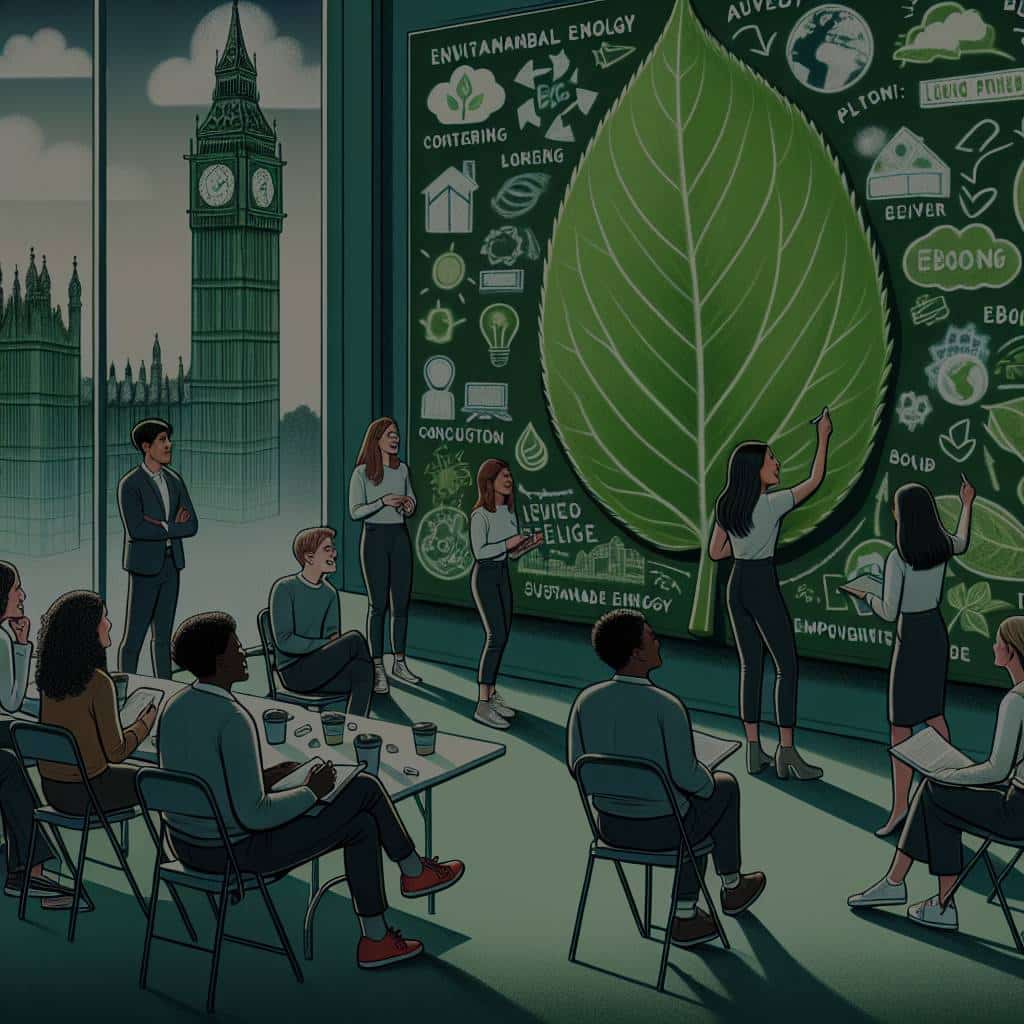How Can Youth-Led Initiatives Shape Environmental Policy in the UK?

As the threat of climate change looms large, young people have taken the helm and are steering towards a sustainable future. This article delves into the power of youth-led initiatives in influencing environmental policy in the UK. It explores the role of young people, their determination to bring about change, and how their actions can help sculpt a greener, healthier nation. Let’s see how these vibrant individuals use education, support, and proactive measures to effect change at the national level.
The Role of Young People in Environmental Action
The world over, young people are stepping forward to assume responsibility for the environment. They understand the imminent threat that climate change poses to their future and are not waiting around for adults to take action. They are aware, educated, and willing to participate in environmental decisions that will impact their lives.
Also to see : Unlock your peace of mind with locksmith paris services
In the UK, youth-led initiatives are gaining traction. They advocate for sustainable practices, reduced carbon emissions, and green living. Children and youth, once considered passive recipients of societal decisions, have transformed into active agents of change. They are putting pressure on policy-makers, businesses, and community members to prioritize the environment. Their actions are a testament to their commitment to safeguarding nature and health.
Through strikes, protests, campaigns, and social media, young people are sounding the alarm on environmental degradation. They are demanding immediate and concrete action from the government and society at large.
Also read : What Are the Best Dog Breeds for Allergy Sufferers in the UK?
Education: The Foundation of Youth Action
Education is a critical tool in empowering young people to effect environmental change. By understanding the science behind climate change, the implications of irresponsible human actions, and the necessity of sustainable living, young people are better equipped to make informed decisions and take meaningful action.
Many UK schools are incorporating environmental education into their curricula. They teach students about the impacts of climate change, the importance of reducing emissions, and the benefits of sustainable practices. These lessons go beyond the classroom, inspiring students to live green lives and motivate others to do the same.
Formal education dovetails with self-education. Young people are harnessing the power of the internet to educate themselves and others about the urgency of environmental action. Sharing knowledge, raising awareness, and rallying support for environmental causes are now part of their daily online activities.
Harnessing Social Media for Environmental Advocacy
In the digital age, social media is a potent tool for social change. Young people are leveraging these platforms to amplify their voices and advocate for environmental sustainability.
Platforms such as Instagram, Twitter, and Facebook have become hubs for sharing information about climate change, promoting green lifestyles, and mobilizing support for environmental causes. These platforms reach a wide audience, influencing public opinion, and pressuring policy-makers to take notice.
Young activists use social media to organize strikes, protests, and awareness campaigns. They share striking images and compelling narratives that underscore the urgency of environmental action. They engage followers in discussions, encouraging them to take action in their personal lives and communities.
Influencing National Policy: Youth as Change Agents
The impact of youth-led initiatives is not confined to individual actions or community-level changes. They are playing a significant role in shaping national environmental policy.
Young people are increasingly engaged in policy-making processes. They are attending public consultations, submitting policy proposals, and meeting with decision-makers. Their voices, once ignored or dismissed, are now being heard at the highest levels of government.
In the UK, youth-led initiatives have successfully put climate change on the political agenda. They have pushed for the declaration of a climate emergency, the commitment to net-zero emissions by 2050, and the inclusion of climate change in the national curriculum.
Supporting Youth-Led Initiatives: A Collective Responsibility
Supporting youth-led initiatives is vital to ensure their success and sustainability. Parents, educators, community leaders, businesses, and government bodies have a role to play in empowering young environmental champions.
Guidance, resources, mentorship, and recognition can go a long way in fostering youth-led initiatives. It’s about creating an enabling environment where young people can freely express their ideas, take action, and influence decisions.
The UK government has made strides in supporting youth-led environmental initiatives. However, there’s more work to be done. Public institutions, private businesses, and civil society must come together to back the young leaders of today as they strive for a sustainable tomorrow.
This collective responsibility extends to providing young people with opportunities to participate in decision-making processes. They need to be part of discussions and decisions about the environment. After all, they will inherit the Earth, and it’s high time their perspectives and solutions were given significant consideration.
The Global Climate Movement: Youth Engagement and Leadership
The global climate movement is increasingly youth-led. Young people are not just participants, but leaders, advocates, and influencers. This section delves into the role of youth in the global climate movement, highlighting their engagement and leadership.
Young people’s involvement in the climate movement has been transformative. They have turned the movement from a fringe issue to a mainstream concern. The power of their collective voice, expressed through strikes, protests, and powerful speeches, has drawn attention to the urgency of the climate crisis.
Youth activists, like Greta Thunberg and others, have become the face of the climate movement. These young leaders have taken on the mantle of change, speaking truth to power and demanding action from decision-makers. They have stood before the United Nations, addressed world leaders, and galvanized millions of people worldwide.
Their message is clear – the climate crisis is a violation of human rights. It threatens to rob future generations of a healthy and sustainable planet, and immediate action is required to avert this looming disaster.
Furthermore, young people are engaging with the climate movement at the grassroots level. They are organising local actions, such as beach clean-ups, tree planting initiatives, and community awareness campaigns. They are taking charge of their spaces, shaping them into models of sustainability.
Through their actions, young people are shaping and driving the global climate movement. They are infusing it with a fresh energy, a sense of urgency, and a focus on justice. Their leadership is pivotal in keeping the climate crisis at the forefront of public discourse and policy-making.
Conclusion: Empowering Future Generations for Climate Action
Against the backdrop of the climate crisis, the role of young people has evolved from passive observers to active change agents. Their involvement in climate action is not just a trend, but a necessity. For the sake of their future and the future of our planet, young people need to be at the centre of decision-making processes related to the environment.
The UK has seen a surge in youth-led initiatives, with young people stepping up to safeguard their future from the devastating impacts of climate change. Their actions, infused with education and leveraged through social media, have brought about significant changes at the community and national levels.
The key to sustaining this momentum is continued support for these initiatives. The UK government, along with public institutions, private businesses, and civil society, must foster an enabling environment for youth engagement. They need to ensure that young people have the resources, mentorship, and opportunities to effect meaningful change.
Empowering young people to lead in climate action is an investment in our future. It is about ensuring that future generations inherit a planet that is healthy, sustainable, and just. As such, the importance of youth engagement in climate action cannot be overstated.
As we confront the climate crisis, we need the courage, determination, and creativity of young people more than ever. Their leadership offers a beacon of hope in these challenging times. By supporting and empowering them, we can help shape a brighter, greener future for all.
